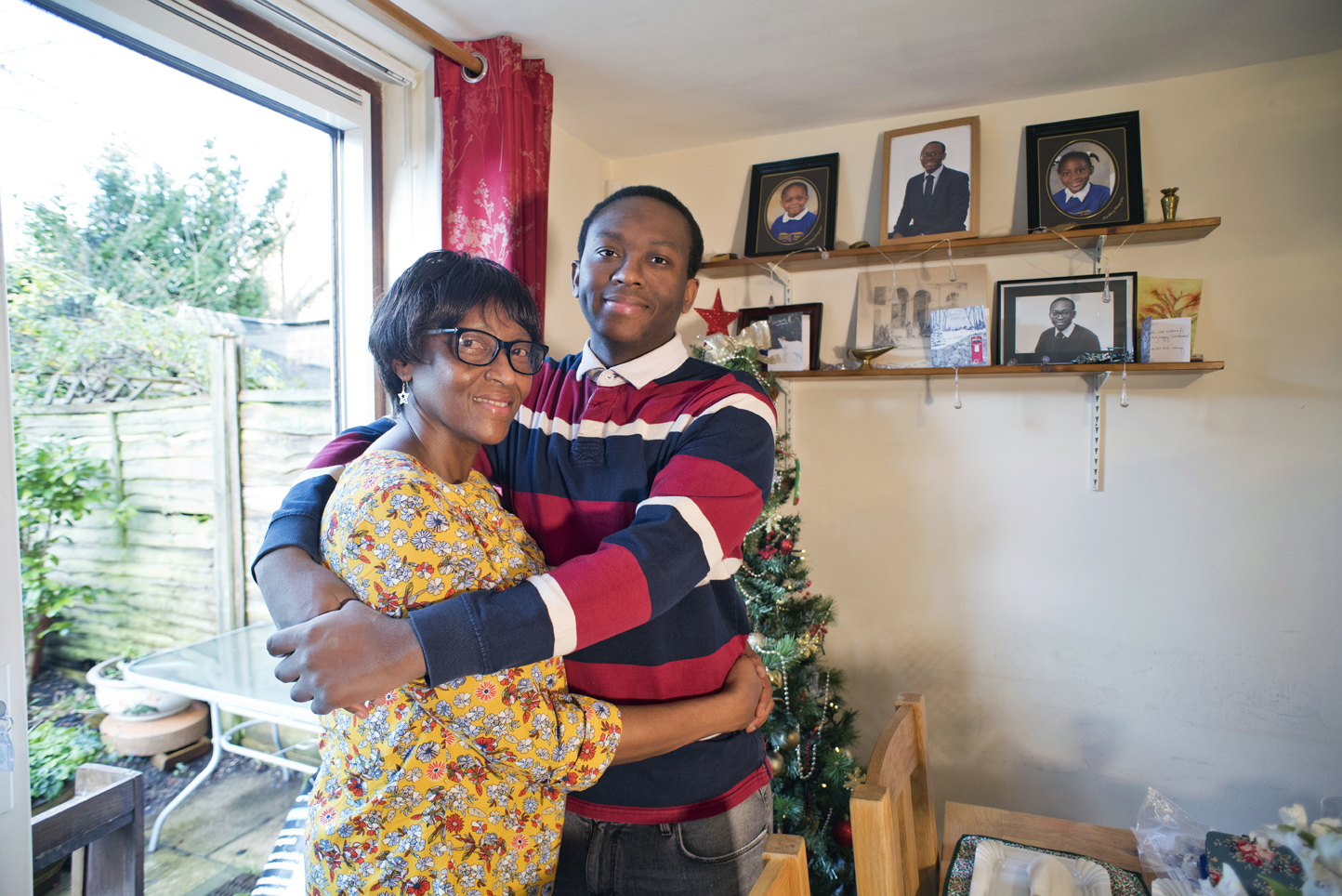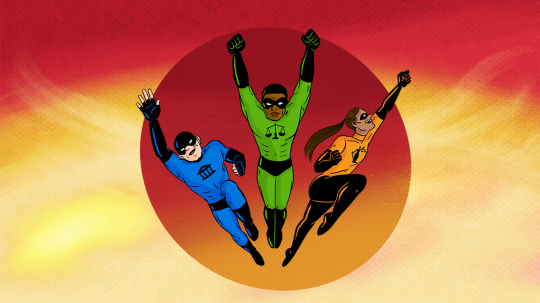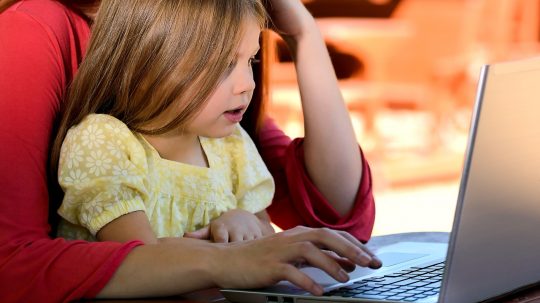Linden was only 16 years old when he was forced to undertake a three-year court battle to become a British citizen.
The Home Office had rejected his citizenship application, even though he has lived in the UK since he was four and remembers nothing of where he was born – Saint Kitts.
His mum, Tessa, had to borrow more than £1,000 to cover the costs of registration – a fee which the High Court has since ruled to be unlawful.
Solange Valdez-Symonds, a solicitor with the Project for the Registration of Children as British Citizens (PRCBC), carried out years of pro bono work to secure Linden’s right to remain in the UK.
Now aged 19, Linden is studying electrical engineering at the University of Portsmouth. He is also a talented musician and performs across the country with the Wandsworth Symphony Orchestra.
But he still remembers the feelings of fear and anxiety caused by being left in limbo over his immigration status.

Linden and his mum, Tessa. Credit: Alice Mustasa
Linden’s story is one of many included at a new exhibition in London by photographer Alice Mutasa, featuring portraits of children and teenagers who have come into contact with the UK justice system.
Among the collection are stories of young people caught up in family disputes, challenging inadequate housing conditions and rebuilding their lives after entering the criminal justice system.
Mutasa, who is also the Law Society’s criminal legal aid policy advisor, spent weeks visiting people’s homes and listening to their stories.
“I just wanted to show how legal issues can impact young people and ask them to explain their thoughts on what is wrong with the legal system and how it might change,” she told EachOther.
“It is also to celebrate the professionals who work in this area and make sure that young people can access justice.”
Mutasa, whose work has taken her to Mali and Niger to photograph the nomadic Tuareg tribe, said that turning her lens towards an issue closer to home was “fascinating”.
“This project brought my photography back to the UK, and it was good to combine my passion for photography with my passion for justice, which is what my Law Society role is about.”


